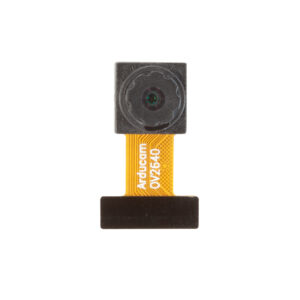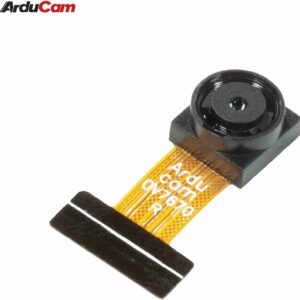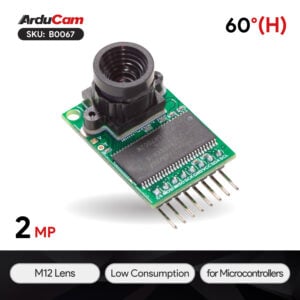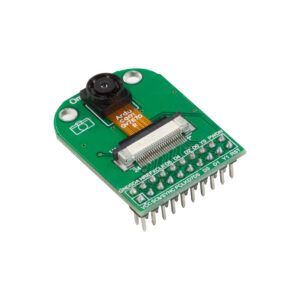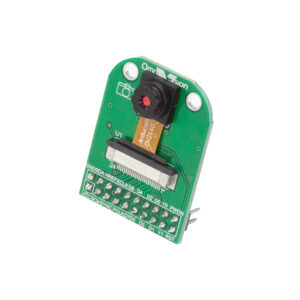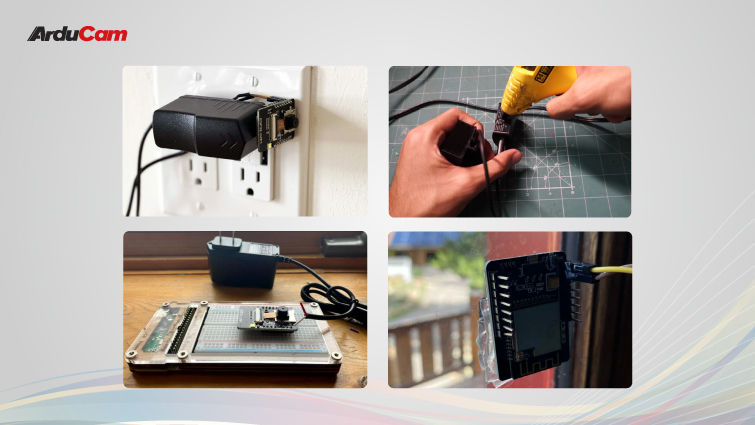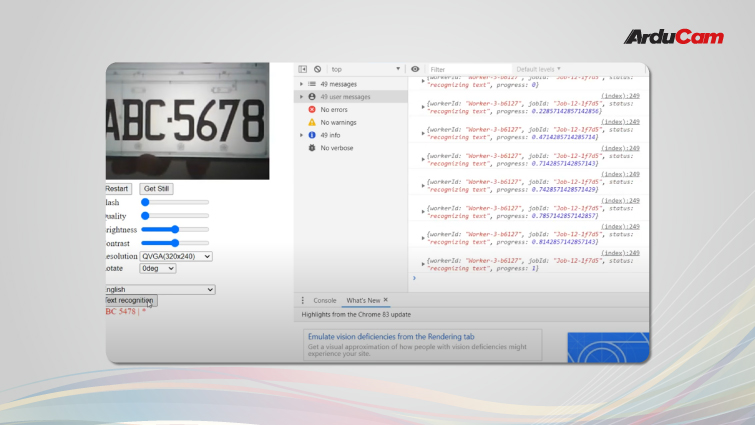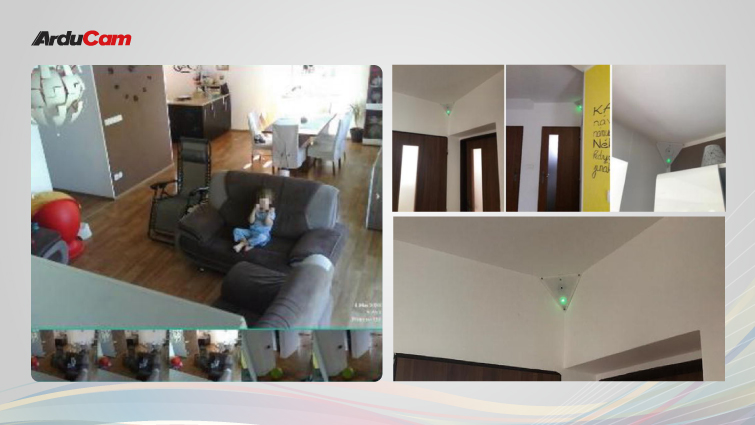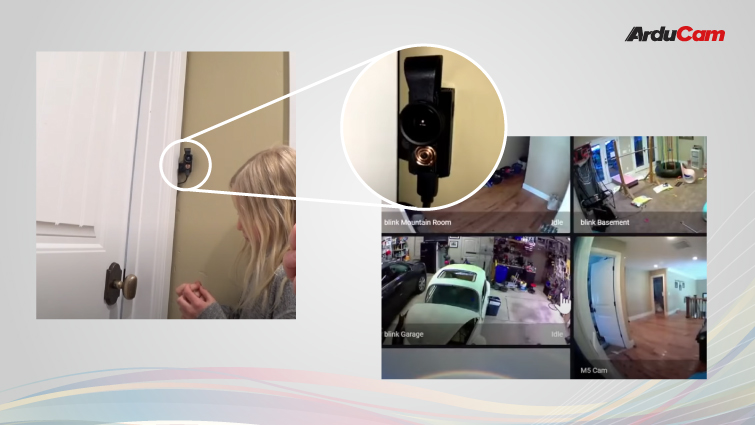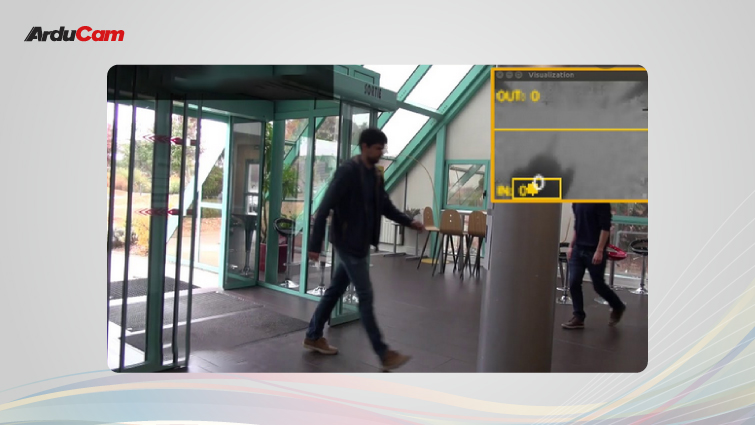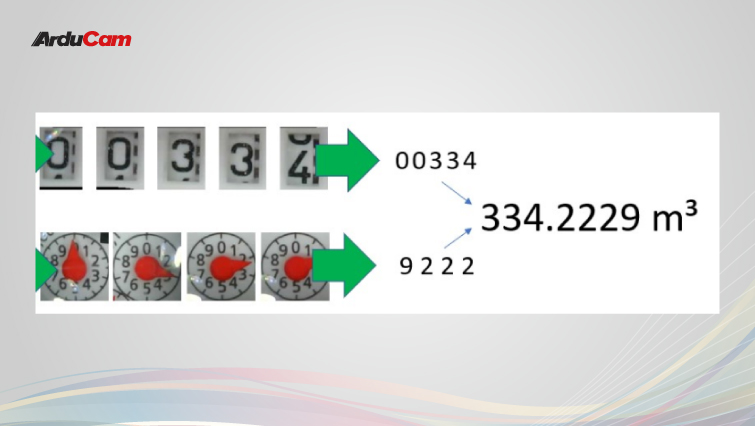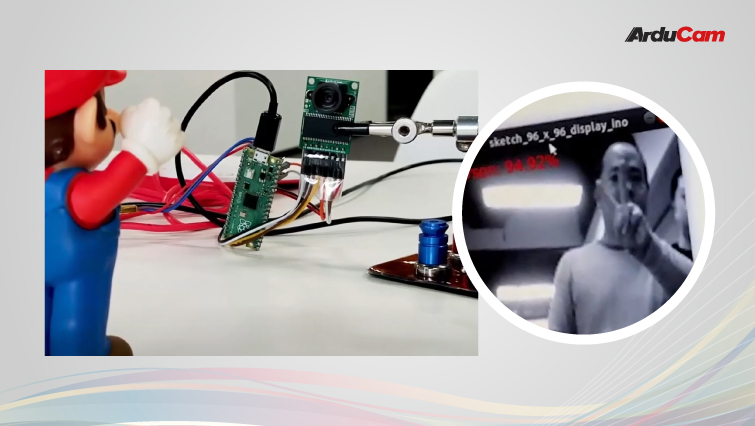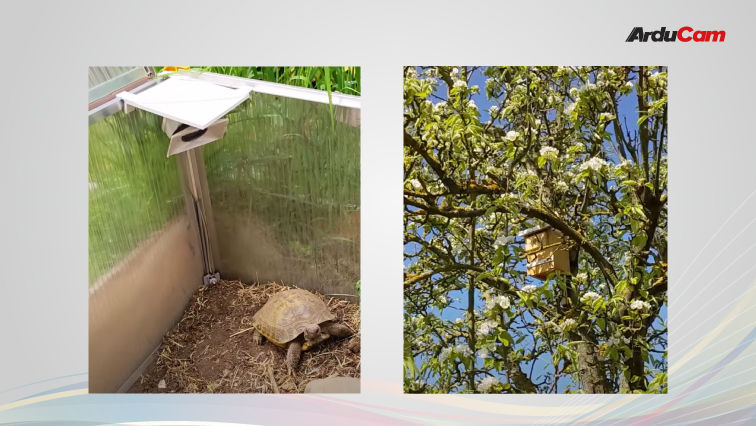Specifications and Datasheets of OV2640 and OV7670
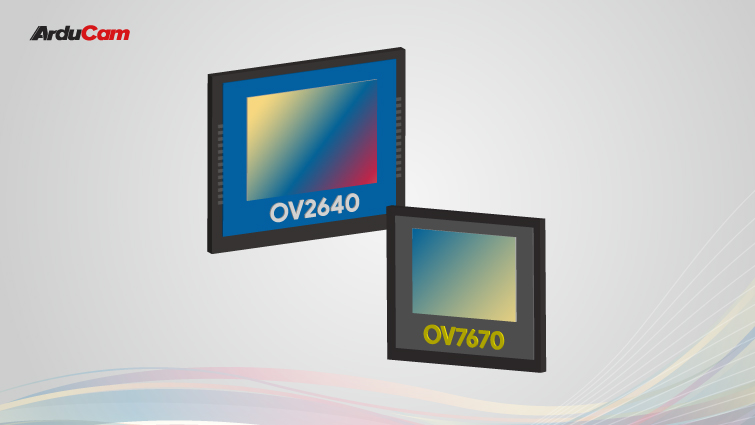
| Key Specs | OV2640 | OV7670 |
|---|---|---|
| Array Size | 1600 x 1200 (UXGA) | 640 x 480 (VGA) |
| Power Supply | Core: 1.3V DC ± 5% Analog: 2.5~3.0V DC I/O: 1.7V to 3.3V | Core: 1.8V DC ± 10% Analog: 2.45~3.0V DC I/O: 1.7V to 3.0V |
| Power Consumption | Free running: 125mW Standby:600μA | Free running: 60mW Standby: < 20μA |
| Image Sensor Format | Type 1/4″ | Type 1/6″ |
| Maximum Image Transfer Rate | 1600×1200@15fps, SVGA@30fps, CIF@60fps | VGA@30fps |
| Sensitivity | 0.6V/Lux-sec | 1.3V/Lux-sec |
| S/N ratio | 40dB | 46dB |
| Dynamic Range | 50dB | 52dB |
| Pixel Size | 2.2 x 2.2 μm | 3.6 x 3.6 μm |
| Output Format | YUV/RGB/Raw RGB Data/MJPEG | YUV/RGB/GRB/Raw RGB Data |
| Shutter Type | Rolling Shutter | Rolling Shutter |
What you need to know about these two image sensors:
- OV7670 was released on August 15, 2005; OV2640 was released in the following year (2006).
- Both sensors were initially designed for mobile applications.
- Both sensors have build-in ISP and output YUV and RGB video format
- What makes these two discontinued sensors more and more popular in recent years is their cost-effectiveness, successful integrations with MCUs, the growing trend of embedded systems, and the rise of machine learning and computer vision technologies.
- OV7670 works right after the power is applied and no additional register settings are required,while OV2640 must do registers initialization to make it output any video.
- OV2640 offers higher resolution and more importantly, it has an on-chip JPEG encoder, which offloads the processing power from low-end MCU and takes much less memory footprint on limited MCU internal RAM.
- If VGA resolution at 30 fps is good enough for your project, OV7670 is usually a better choice because it’s way cheaper than the OV2640 camera.
Below are the full datasheets of these two image sensors:
Sample Images Captured by OV2640 & OV7670 Camera Modules
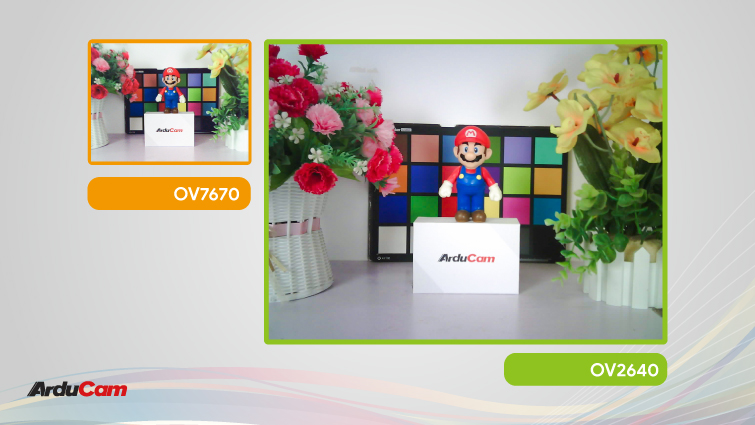
Photos were taken at the two camera’s maximum resolutions. You can download the sample images here:
The setup we used to take these images:
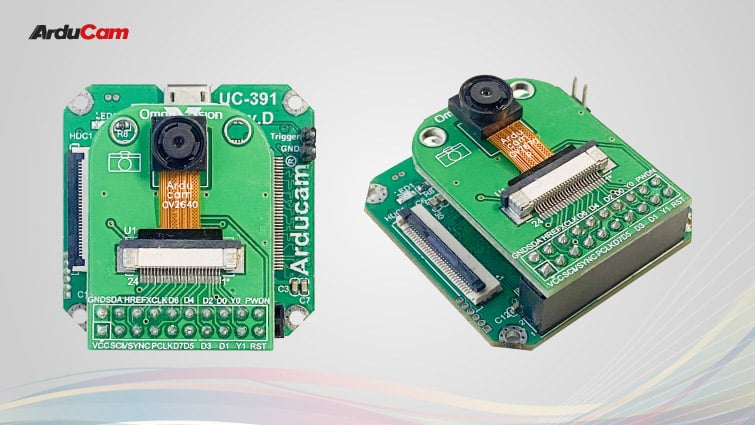
With the Arducam USB camera evaluation board, you can tune the sensor registers on-the-fly to get the best result much easier.
Pinouts of the 24-Pin OV7670 & OV2640 CCMs
OV2640 vs OV7670 Camera Module Pin Definitions (01 ~ 24)
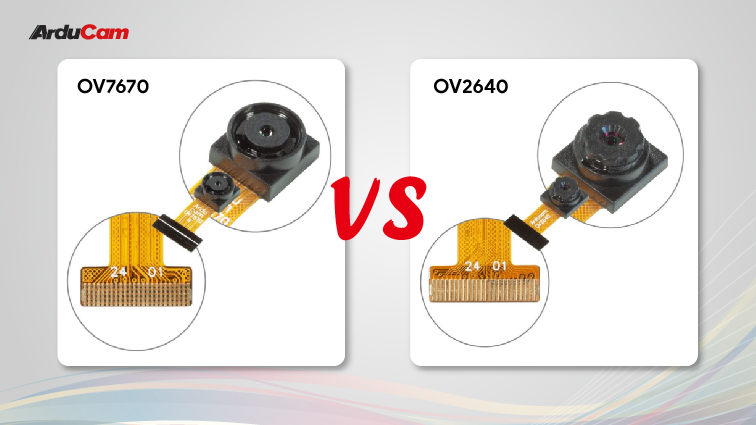
| Pin No. | OV2640 | OV7670 |
|---|---|---|
| 1 | STROBE | NC |
| 2 | AGND | DGND |
| 3 | SDA | SDA |
| 4 | AVDD (2.8V) | AVDD |
| 5 | SCL | SCL |
| 6 | RESET | RESET |
| 7 | VSYNC | VD |
| 8 | PWDN | PWDN |
| 9 | HREF | HD |
| 10 | DVDD | DVDD |
| 11 | DOVDD | DOVDD |
| 12 | D9 | D7 |
| 13 | MCLK | MCLK |
| 14 | D8 | D6 |
| 15 | DGND | GND |
| 16 | D7 | D5 |
| 17 | PCLK | PCLK |
| 18 | D6 | D4 |
| 19 | D2 | D0 |
| 20 | D5 | D3 |
| 21 | D3 | D1 |
| 22 | D4 | D2 |
| 23 | D1 | NC |
| 24 | D0 | NC |
Where to buy OV2640 & OV7670 Camera Modules
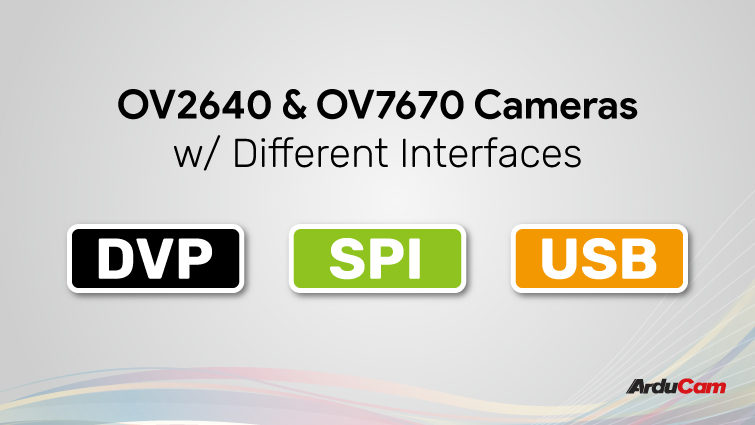
There are many different versions of the two cameras, the main differences between them are the interfaces they have, and whether or not they are compatible with particular hardware or platforms.
1. OV2640 & OV7670 CCM Camera Module
Why you need CCM Camera Modules:
- Do-it-yourself with the camera bring-up, developing, debugging, and tuning process.
- In terms of volume production, standard CCM modules are generally better.
- Saving budget with the lowest possible cost over camera modules.
2. OV2640 SPI Camera Module
Why you need SPI camera modules:
- Highly optimized to work on resource-constrained microcontrollers.
- Up to 8MByte onboard frame buffer.
- I2C for configuration, SPI for data, and command.
- Support multiple camera setups on a single MCU.
3. OV2640 & OV7670 USB 2.0 Camera Evaluation Kit
Why you need camera evaluation kits:
- USB 2.0 connection for quick Proof-of-Concept building with the two cameras.
- Tweak the sensor registers on the fly.
- Comprehensive SDK and API for easy integration.
- Swappable DVP camera adapters that add support for more sensors.
OV2640 & OV7670 Resources and Tutorials
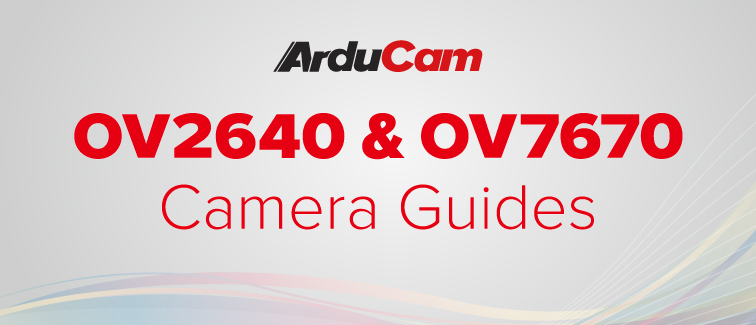
Given the above camera variants and with some coding, you can put them on just about any hardware you want. Below is a list of guaranteed-to-work platforms and documentations to help you jump-start your machine vision journey.


